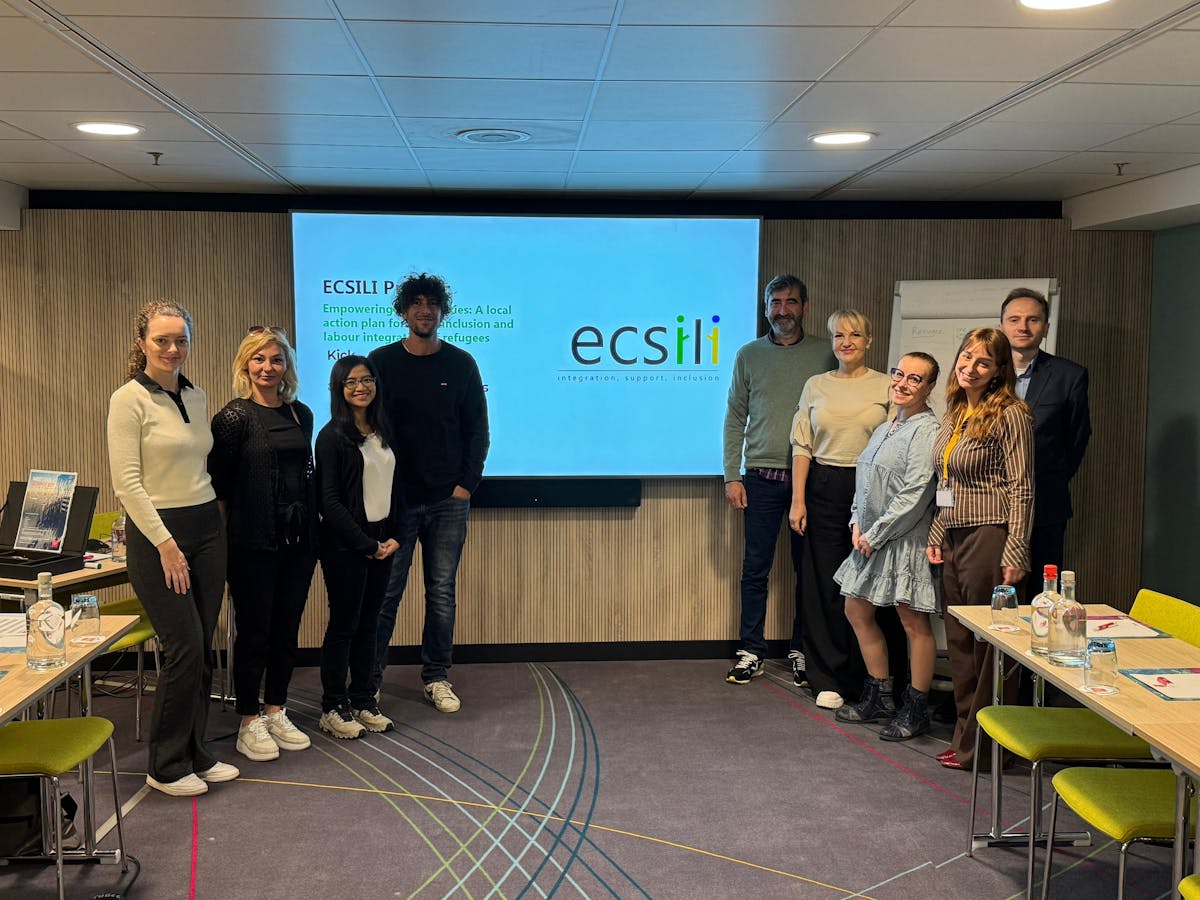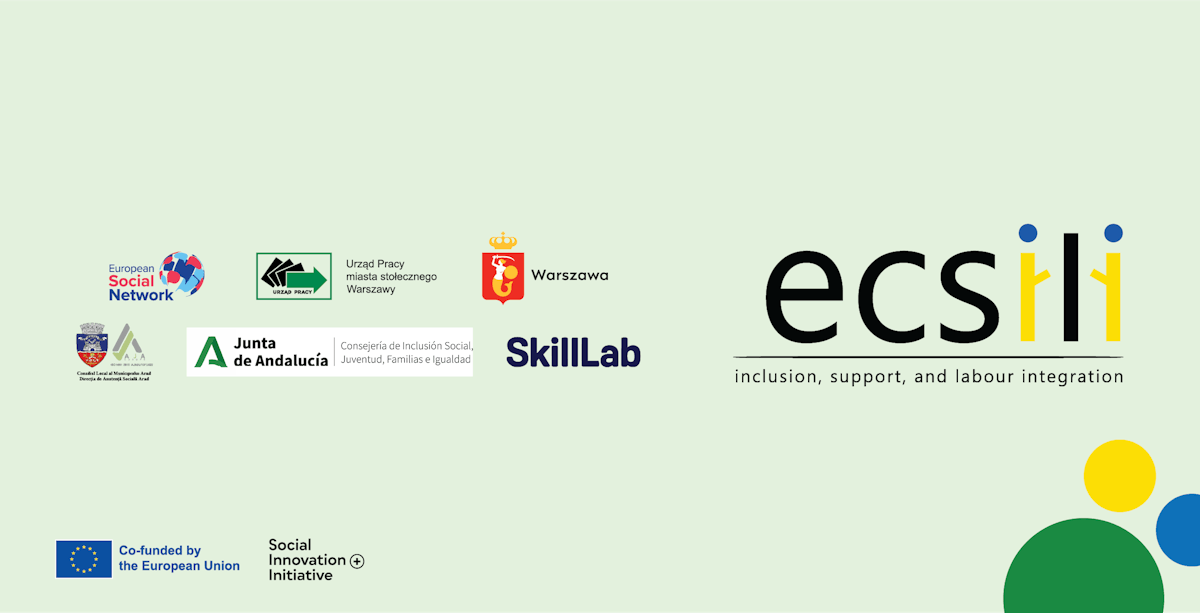ECSILI - Engaging the Community for Migrants’ Social Inclusion
Social exclusion is not only a concern for people who are socially disadvantaged. It is an issue that demands engagement across the whole society. This is why ERACIS, the Regional Strategy for Social Cohesion and Inclusion in the Spanish region of Andalusia, is increasingly being seen as a model for others to follow in tackling this. ERACIS is a strategy that enables local governments to create tailored action plans for social inclusion involving public and private entities operating within the same territory. As a testament to its success, the strategy is now being implemented in 99 disadvantaged areas in Andalusia.

ECSILI consortium in the kick-off meeting in Brussels, 8-9 May 2025
Inspired by the success of ERACIS, SkillLab joined forces with European Social Network (ESN), CISJUFI Andalucía, the city of Warsaw and Arad to apply the strategy in other European cities. Led by ESN, the ECSILI Project (Empowering Communities: A Local Action Plan for Social Inclusion and Labour Integration of Refugees) aims to adapt the ERACIS model to the local context in Poland and Romania to support the social inclusion of Ukrainian refugees.
ECSILI is a European Social Fund + Innovation project aimed at mitigating the societal consequences of the war in Ukraine. Its core objective is to improve social and labour market inclusion of Ukrainian refugees in the cities of Warsaw, Poland and Arad, Romania. To do so, ECSILI will enhance the adapted ERACIS model with SkillLab’s skills-based approach by integrating an online skills profiling tool to support the refugees’ labour market integration.
ECSILI inserts itself in the broader EU strategy launched in March 2022 with the activation of the Temporary Protection Directive. Issued to cope with the mass arrival of displaced people caused by Russia’s invasion of Ukraine, the policy lists social welfare and employment as rights to be granted to the beneficiaries of protection. However, according to the 2023 Eurofound survey on “Barriers to employment reported by Ukrainian refugees”, 21% of the respondents listed lack of information on the services to contact and 16% mentioned struggles in having their qualifications recognised.
Against this backdrop, the ECSILI consortium will engage in the creation of an ERACIS-inspired framework model to support the inclusion of the Ukrainian refugees in the two cities. This framework includes personalised pathways towards employment and social inclusion by community social services.
The creation of the framework consists of several steps. First, a local needs analysis will be conducted in each city with the active involvement of local stakeholders. Engaging refugees, social workers, local employers, NGOs and employment services will help generate a sense of community and agency, emphasising everyone’s role in the social well-being of their city. Then, the result of the analysis will be used to ensure that the skills-based online profiling tool was applied by taking into account the local labour market context. This tool will help refugees capitalise on their professional assets and facilitate social service professionals to guide them towards suitable occupations in the area. The adapted ERACIS model will be combined with the tool in a pilot phase that takes place in the 2nd year of the project. Involving various local actors, the overall goal will be to improve the lives of 50 Ukrainian refugees in Arad and 80 in Warsaw through the search of suitable employment, referral to relevant available public services and involvement in social and community activities.
ECSILI’s approach aims to fill the gaps within existing structures for Ukrainian refugees’ social and employment integration in both cities. In Warsaw, fragmentation of information among different local agencies hinders refugees’ integration into the local labour market. In Arad, the lack of matching between skills and occupation impacts the refugees’ sense of belonging to the community.
According to Alfonso Lara Montero, ESN Chief Executive Officer, social inclusion involves "working across agencies so that refugees have access to a job in line with their professional qualifications, enabling them to stand on their own feet and contribute to the local economy and be included in their communities". The ECSILI project is designed to do exactly that.
As the war in Ukraine persists, and anti-Ukrainian sentiment grows among host communities (BBC 2025), ECSILI stands out as timely and necessary. With all of this in mind, the ECSILI consortium launched in Brussels on 8-9 May 2025. Its work to enhance social inclusion begins immediately.
Learn more about ECSILI and its goals on the project’s webpage.
